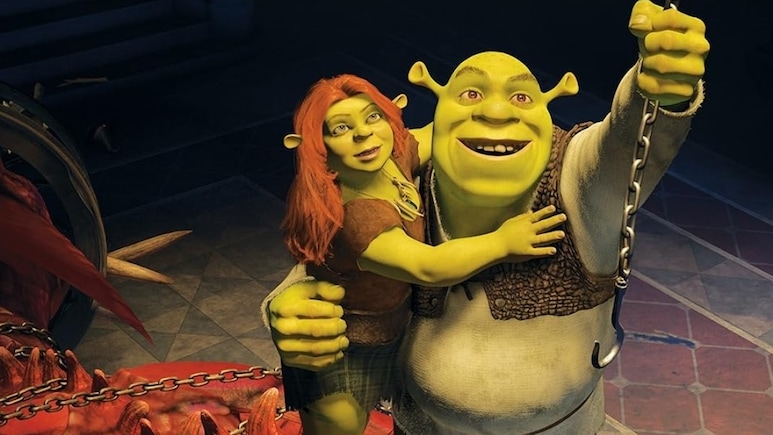
If you thought "ghosting" and "breadcrumbing" were the peak of messy dating slang, brace yourself. Gen Z has moved the goalposts yet again, introducing "Shrekking" and "Monkey-barring" into the dating dictionary. And no, they're not from a Pixar spin-off or a new gym routine, they're very much about how today's young daters are handling relationships.
Spoiler: not always in the healthiest way.
So, what do these terms actually mean, why are they catching on, and more importantly, why do experts say they're toxic?
Let's decode.
What Does Shrekking Really Mean
At first glance, "Shrekking" sounds like a meme-worthy tribute to the green ogre of fairytale fame. But in the dating world, it's not about onions or swamp life. Neha Parashar, Senior Clinical Psychologist and Relationship Expert at Cadabam's Mindtalk, explains, "Think of Shrekking as 'dating down on purpose.'"
The idea is: choose someone you believe is less conventionally attractive or lower-status so you'll be 'safer' from heartbreak. The twist is that people still get rejected, they 'get Shrekked', because attraction and kindness don't obey a crude beauty/status calculus.
Neha says, this trend is toxic because it treats partners like risk shields, not people.
In other words, Shrekking is essentially "settling in advance", hoping safety will turn into love. Unfortunately, what you actually get is resentment, unequal footing, and the awkward sense that your partner has been chosen like a backup plan.
Shivam, emotional intelligence coach and author, further adds that "Shrekking is toxic because in these trends you're only thinking about yourself and no one else. About your fun and your excitement. So naturally you don't think about the other person."
Monkey-Barring: Emotional Cheating In Disguise
Now for monkey-barring, the term is inspired by how children and even monkeys swing from one bar to the next - never letting go of one until they've gripped the other. The dating equivalent? Not letting go of your current partner until you've found emotional security in someone new.
Priyanka Kapoor, Counselor and Psychotherapist, explains that monkey-barring is used for emotionally connecting with someone else even when you are already dating someone. "Its basically emotional cheating where you emotionally connect and take support from the third person," she adds.

Photo: Unsplash
In monkey-barring, there are emotional vulnerabilities and disloyalty, Priyanka says.
"If there are issues within the couple it's better to resolve it or break it. But this will hurt the partner as one is sharing their emotional space with someone else," she adds.
Parashar agrees and adds that, "This is the newer label for a long-observed behaviour also called 'monkey-branching' - so you never face being single. It's toxic because it relies on secrecy, splits attention and empathy, and denies both partners honest consent."
Why Are These Toxic Terms Gaining Traction With Gen Z
If you're wondering why every six months a new dating buzzword goes viral on social media, and catching up with them seems impossible, trust us, you're not alone (we are also still trying to cope with it). It's partly because Gen Z (with very few exceptions) is great at slapping catchy labels onto age-old habits.
Experts suggest that "Gen Z uses micro-labels to narrate patterns fast; terms spread on TikTok/Instagram because they turn vague discomfort into a sharable 'Aha.' Choice overload on dating apps, swipe fatigue, and ghosting make defensive strategies like Shrekking or Monkey-barring feel tempting."
Shivam agrees that part of the problem is the sheer abundance of options, "This is getting common because people have a lot of options for dating and people are getting a little tired of it."
Alma Chopra, Motivational Speaker And Life Coach, sees it as a generational culture shift, "There is a growing concern about the rise of toxic dating culture, largely due to the generational gap in mindsets. While older generations tend to hold more traditional views on relationships, younger generations lean toward a more adaptive and situational approach. The prevailing trend encourages situationships - connections built on convenience and comfort rather than commitment."
Is Toxic Dating Culture Really Rising
The million-rupee question: are these just new names for old tricks, or is dating genuinely becoming more toxic?
Alma Chopra believes it's the latter, "Though this structure-free approach offers flexibility and ease, it also fosters confusion, ambiguity, and a lack of accountability."
Priyanka also believes the same.
"Being in a relationship has become a cultural norm; if someone doesn't have a partner, they're seen as not okay, that's what's going on. This constant pressure of finding someone makes the younger generation date someone even toxic," Priyanka says.
Neha Parashar points to a mix of cultural and psychological factors.
"Measured strains show modern dating affordances, abundant choice, ambiguous norms, can raise fear of being single, lower self-esteem, and heighten rejection sensitivity. That sets the stage for hedging behaviours like monkey-barring and Shrekking."
Simply put, dating apps have created a landscape of unlimited choices, but also unlimited confusion. When rejection feels routine and the pressure to "always be partnered" is high, shortcuts and toxic habits can become the default.
How To Avoid Falling Into The Trap
We asked experts to offer ways to keep your love life from spiralling into swamp territory. Here are some pointers:
- Admit to yourself whatever mess you're in. Self-awareness is the first step.
- Don't start a new romance until you've respectfully ended the last one.
- Experts say. looks and social clout won't protect you from heartbreak - kindness and emotional maturity will.
- Cut down on endless app-scrolling and focus on quality over quantity.
- Communicate early. Directness beats game-playing every time.
Shrekking and monkey-barring might sound like fun internet slang, but at their core they reflect the growing insecurities of modern dating. They're not cute trends, they're toxic strategies dressed up as memes.
The antidote? A little less "gaming the system" and a little more honesty.
And remember, before jumping into the comments to blame Gen Z, they may have coined new names for it, but such situations are timeless.
Track Latest News Live on NDTV.com and get news updates from India and around the world

